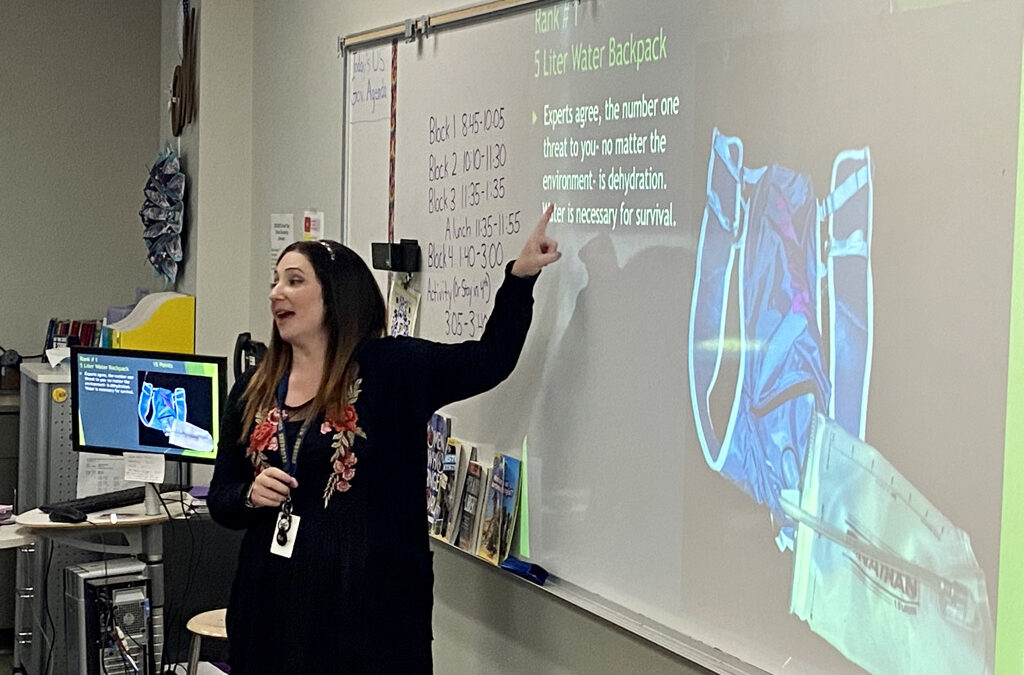We have begun this year with a clear and pressing urgency to ensure student engagement and building transformative relationships are prominent features of our work with students every day. When students are engaged and known, they achieve at much higher levels – and so do we!
I had the opportunity to visit a classroom where these two areas of focus were on display. FCHS teachers Melody Morgan and Courtney Harrow-Burner are being intentional about co-planning this year, and strategic about ensuring the first week was about engagement and relationships. Students were presented with challenges each day – Lost in the Amazon, for example – and then worked in small groups to make decisions related to their situations. Ultimately they were awarded points depending on the decisions they coalesced, so there was gentle competition involved as well.
Students were fascinated by the scenarios, and interacted with content material while moving through the various modules – but maybe most importantly strengthened skills they will need to call upon throughout the course during the year, and in future career endeavors. They learned how to communicate and problem solve in groups, sometimes with people they had only just met. They collaborated with colleagues and learned to compromise, assert themselves, and listen to each other. (in other words – communicate!)
And in the process they began to construct relationships with each other and their teachers that will enable them to maximize their potential as learners.
This kind of thoughtful, research-based instruction is happening all over our schools during these first weeks. And the impact it will have on student learning will be exponential. Sure, we can take the first couple of days and force students to sit silent and still while we exhaustively go over the “do nots” of the handbook – or right out of the gate we can engage kids ‘ interest and talent and encourage them to get to know each other and form pathways for future success and learning.
My experience is that students in the first scenario wish they were elsewhere. Students in the second classroom wish they could stay a little longer and look forward to coming back. Wonder which one will inspire more learning?
Let’s keep moving toward what works, FLUCOS!
Peter M. Gretz, Division Superintendent









Recent Comments